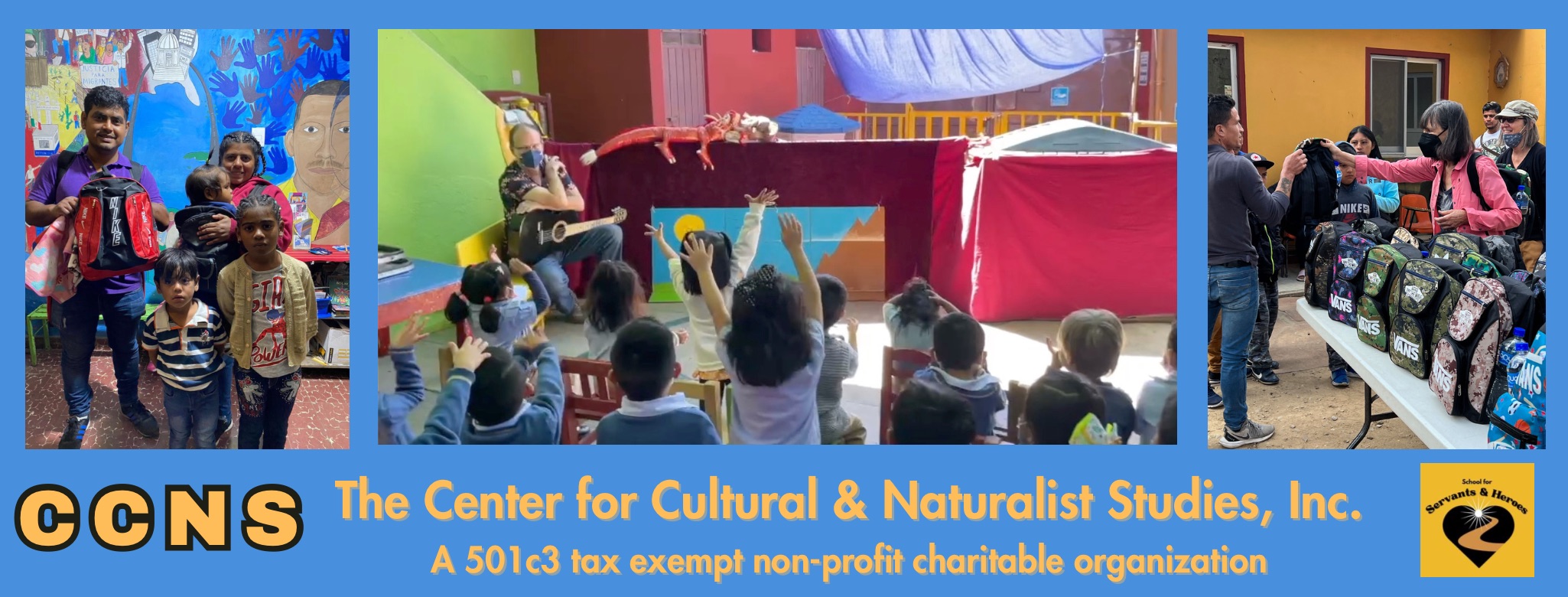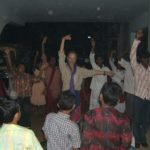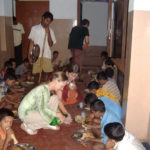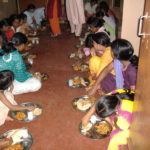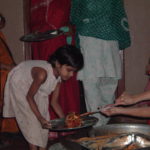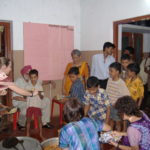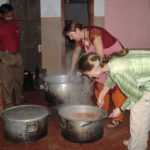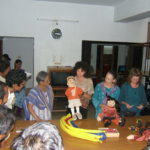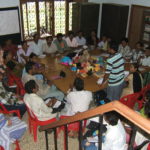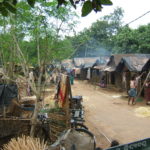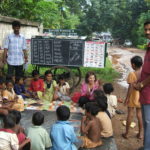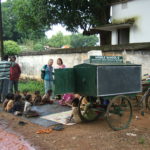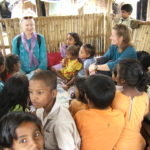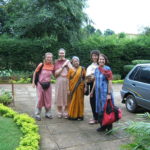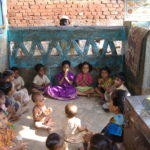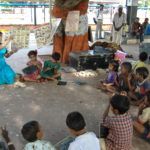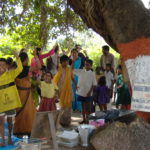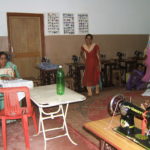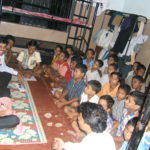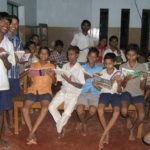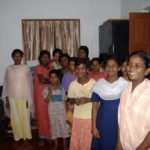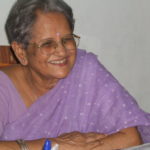INDIA
RUCHIKA & THE PLATFORM SCHOOLS
“If the child cannot come to the school,
then the school must come to the child.” Inderjit Kaurana
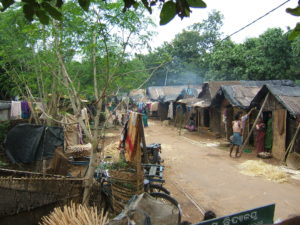 Some years ago, PBS began a series called New Heroes, hosted by Robert Redford. One segment was about a woman in Eastern India named Inderjit Kaurana who, more than twenty-five years ago, organized a makeshift school on a railway platform in Bhubaneshvar, Orissa [300 miles south of Calcutta]. Every day, she saw kids who lived on or around the train station, likely destined for gangs, begging, stealing, or prostitution. One day she decided that since these children couldn’t go to a school, she must bring a school to them. She convinced a fellow teacher to join her on Sundays on the train platform in order to start offering basic education to the kids there. Over the years, this initial “railway platform school” has expanded to an extensive network of schools, mostly geared toward street children, child laborers, and children of impoverished families living in the slums. They provide “basic literacy, non-formal education, vocational training, nutrition, medical treatment, and emergency assistance to over 4,000 children and their families.” As soon as I saw the PBS show, I felt very strongly that we needed to redo our itinerary in order to meet Inderjit and see what help we could offer.
Some years ago, PBS began a series called New Heroes, hosted by Robert Redford. One segment was about a woman in Eastern India named Inderjit Kaurana who, more than twenty-five years ago, organized a makeshift school on a railway platform in Bhubaneshvar, Orissa [300 miles south of Calcutta]. Every day, she saw kids who lived on or around the train station, likely destined for gangs, begging, stealing, or prostitution. One day she decided that since these children couldn’t go to a school, she must bring a school to them. She convinced a fellow teacher to join her on Sundays on the train platform in order to start offering basic education to the kids there. Over the years, this initial “railway platform school” has expanded to an extensive network of schools, mostly geared toward street children, child laborers, and children of impoverished families living in the slums. They provide “basic literacy, non-formal education, vocational training, nutrition, medical treatment, and emergency assistance to over 4,000 children and their families.” As soon as I saw the PBS show, I felt very strongly that we needed to redo our itinerary in order to meet Inderjit and see what help we could offer.
We brought nine large duffel bags full of toys that we had received as donations from various companies in California. These would be kept in a bus, serving as a “mobile toy library” and be driven around to all the schools and daycare centers, so the kids could check out a toy for a week at a time.
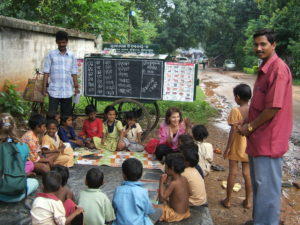 During our stay, we visited place after place – classrooms on train platforms, daycare centers, and schools in tiny rooms in slums — all filled wall to wall with children — some manned by volunteers, some by paid teachers.
During our stay, we visited place after place – classrooms on train platforms, daycare centers, and schools in tiny rooms in slums — all filled wall to wall with children — some manned by volunteers, some by paid teachers.
We sang songs with the children, played games, organized art projects, and taught classes, each day meeting so many beautiful, eager children. We learned that it cost the organization $1,000 to run a school with a paid teacher for a year.
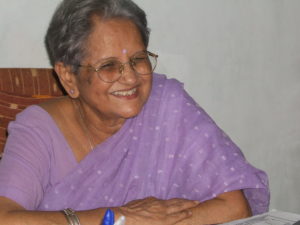 In Inderjit we encountered a truly extraordinary woman with an enormous heart, amazing vision and stamina, striking humility, and a delightful sense of humor. She was an indefatigable advocate for the rights of children, particularly their educational rights.
In Inderjit we encountered a truly extraordinary woman with an enormous heart, amazing vision and stamina, striking humility, and a delightful sense of humor. She was an indefatigable advocate for the rights of children, particularly their educational rights.
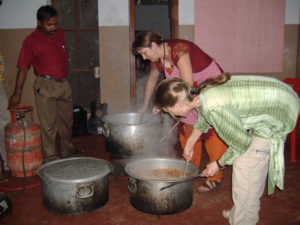 Day after day we were amazed by the astounding work Inderjit and her few associates were doing, so full of hopeful stories about the children’s futures. On our final night, the seven of us made and served a spaghetti dinner to the 65 kids in the shelter from which Inderjit ran the organization.
Day after day we were amazed by the astounding work Inderjit and her few associates were doing, so full of hopeful stories about the children’s futures. On our final night, the seven of us made and served a spaghetti dinner to the 65 kids in the shelter from which Inderjit ran the organization.
Such a memorable undertaking!
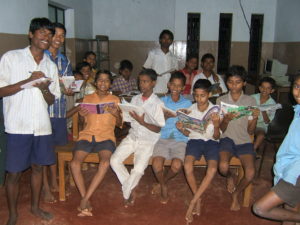 Should you ever find yourself in Orissa, or if you are ever looking for someplace to volunteer working with enthusiastic, underprivileged children, or if you ever find yourself a little too low on this-worldly hope and joy and feelings of purpose and fulfillment, then by all means, contact the Ruchika Social Service Organization at ruchika.org.
Should you ever find yourself in Orissa, or if you are ever looking for someplace to volunteer working with enthusiastic, underprivileged children, or if you ever find yourself a little too low on this-worldly hope and joy and feelings of purpose and fulfillment, then by all means, contact the Ruchika Social Service Organization at ruchika.org.
Volunteers are most welcome.
